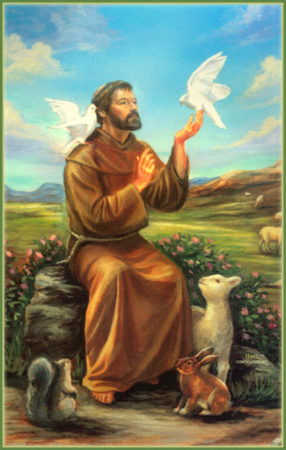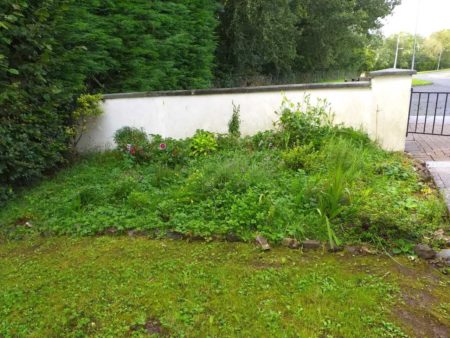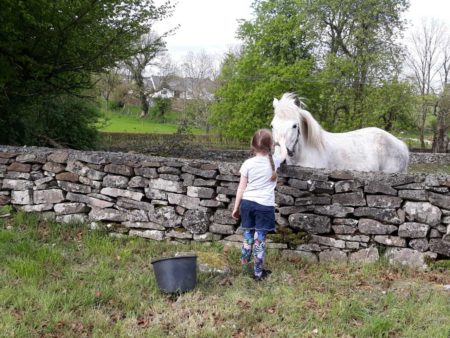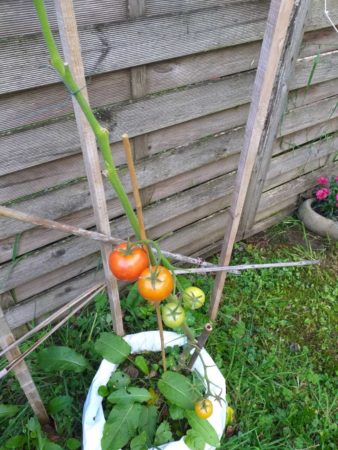Feast of St. Francis of Assisi
Be praised, my Lord…..

As we celebrate the Feast of Francis of Assisi we are reminded through Christian and non-Christian researchers, theologians and biographers, who have drawn information from the oldest and most reliable sources, that what we know about Francis reveals the greatest example, since Jesus, of a sure path to interconnectedness with God’s spirit alive in our world. Francis walked closely in the footsteps of Jesus entering deeply into his life and sufferings and following his example in his ministry to the poor and marginalised.
So the question arises in our minds: “How did Francis acquire such a deep personal relationship with God within himself and within the elements of the whole universe and what can we learn today from his experiences”? A brief look at his ancestry might help us understand the context of his mind set.
In his early years Francis enjoyed the rich life he inherited from his family and for a short time spent his money on a free and reckless lifestyle. This led to his confinement within prison and in this prison space Francis found time to reflect on the context and direction of his life’s journey so far and it motivated him to examine the direction his life was taking.
It is important to identify and know the significance of our roots and heritage as the source from where our communion with ourselves with God and with the universe come.
After his release from prison and while riding through the streets of Assisi, Francis became overwhelmed with what seemed like a feeling of pity, and some God given awareness, that moved him profoundly as he looked at the plight of an abandoned person with leprosy, lying in the street. It is presumed that this was one of the wake up moments when Francis sensed the presence of the God within himself and in the leper right in front of him.
During this Season of Creation, it is important that we have had time to reflect on the direction our lives are taking, and to ask “where is God’s presence calling us in the cry of the earth and the cry of the poor”?
Just as Francis had an encounter with the leper, could we ask ourselves – Are we really hearing the cry of migrants in Lesbos, and can we help? What about the migrants and refugees in our neighbourhoods do they feel at home with us? Francis travelled to Muslim territory during the 5th Crusade and instead of converting them he ended up becoming their friend.
 Francis had a wild patch in his friary garden so that he could watch untouched growth and life there
Francis had a wild patch in his friary garden so that he could watch untouched growth and life there
Francis always took time to withdraw to isolated places to contemplate. He seemed to emerge from these desert locations aware that he needed to live his contemplative aspirations actively among the forgotten and marginalised. He grew to love nature and the elements to such a degree that he saw them as extensions of himself, referring to them as his family – “sister, brother, mother, lady” and expressing this deep love for them in song and poetry. Pope Francis in naming his Encyclical Laudato Si says that he did so to echo the words of St. Francis canticle “Praise to you, my Lord.”
If we could, as a world, develop such a relation of kinship with the universe we would have greater reservations about doing the damage we have done in the name of so called progress.
What kind of ecological conversion then do we need to help us work at repairing even a little of the damage we have done to our environment?
Francis is nearly always portrayed in images of art and photography surrounded by animals and is well-known as the popular patron saint of ecology worldwide.
In the early twentieth century World Animal Day was started with the intention of celebrating the day on the Feast of Frances of Assisi October 4th. This happens today with ceremonies showing reverence and care for God’s creatures emphasising the need to give animals the rights due to them as God’s creation. The poem Do Dogs Go To Heaven helps us to revisit the communion in our common home and to reflect again on the magnificence of all life.
Frances’s appreciation of God communicating with him through all creation inspired him to write this canticle in spite of being very ill and almost blind at the time. It is a prayer that continues to call us into the great communion:
Canticle of Creation
O Most High, all-powerful, good Lord God,
to you belong praise, glory,
honour and blessing.
Be praised, my Lord, for all your creation
and especially for our Brother Sun,
who brings us the day and the light;
he is strong and shines magnificently.
O Lord, we think of you when we look at him.
Be praised, my Lord, for Sister Moon,
and for the stars
which you have set shining and lovely
in the heavens.
Be praised, my Lord, for our Brothers Wind and Air
and every kind of weather by which you, Lord,
uphold life in all your creatures.
Be praised, my Lord, for Sister Water,
who is very useful to us,
and humble and precious and pure.
Be praised, my Lord, for Brother Fire,
through whom you give us light in the darkness:
he is bright and lively and strong.
Be praised, my Lord, for Sister Earth, our Mother,
who nourishes us and sustains us, bringing forth
fruits and vegetables of many kinds
and flowers of many colours.
Be praised, my Lord,
for those who forgive for love of you;
and for those who bear sickness and weakness
in peace and patience
you will grant them a crown.
Be praised, my Lord for our Sister Death,
Whom we must all face.
I praise and bless you, Lord, and I give thanks to you,
and I will serve in all humility.
St. Francis of Assisi
 In communtion with God’s creature
In communtion with God’s creature
Today World Animal Day has been adopted by animal rights activists. They use 4th October to highlight the most pressing challenges facing animals as climate change and exploitative methods of economic development threaten the livelihood of many animals. It is important that we support these initiatives and help protect our most vulnerable species.
St. Francis of Assisi’s feast is an appropriate day to end this ecumenical five weeks of global dedication to prayer and action. We have had the opportunity to reflect, to renew our commitment to the care of our common home and to commit ourselves to implement some ideas that may have come to us during these weeks.
 Fruit of the earth and work of human hands
Fruit of the earth and work of human hands
For more information on Praying for Nature with St. Francis and St. Francis as a guide for Nature Lovers and Ecologists please click here.
Nora Burke rsm


